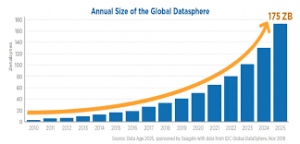Data collection – Is it ethical?
By Sarah Wang | September 18, 2020
Companies’ data collection is growing rapidly and is projected to continue. Data collection refer that companies use a cornucopia of collection methods and sources to capture customer data, on a wide range of metrics. The type of data collected could range from personal data, such as Social Security numbers and other identifiable information, to attitudinal data, such as consumer satisfactory, product desirability and more.

Consumer data is collected for business purpose. For example, companies often analyze customer service records to understand what interaction methods worked well and what did not, and how customers responded, on a grand scale. Furthermore, it is also common for companies to sell customers data to third-party resources for profit or business collaboration. But this process is nearly never clearly disclosed to customers.
Why are companies collecting customer data?
Targeted advertising the the main driver behind customer data collection. Target advertising is directed towards audiences with certain traits, based on the product or the person the advertiser is promoting to. Contextualized data can help companies understand customers’ behavior and personalize marketing campaign. As the result, the increase in the likelihood of a purpose transaction will increase companies’ return on investment.
Concerns about data collection
Data privacy and breach is the major concerns about data collection. Last year, major corporations, such as Facebook, Google, Uber, experienced data breaches that put tens of millions of personal records into the hands of criminals. These breaches are only the “tip of the iceberg” when it comes to hacked accounts and stolen data. Consumers are beginning to take notice. In a research conducted by PWC, 69% of consumers believe companies are vulnerable to hacks and cyberattackers.

Over the time, this caused consumers to lose trust in companies that have customers’ personal information. Only 10% of consumers feel they have complete control over their personal information. If customers don’t trust the business to protect their sensitive data and use it responsibly, companies will get nowhere to harness the value of that data to offer customers a better experience
Last, but not the least, another downside of data driven business is it subjects to model bias. One example of that is how amazon’s recruiting algorithm is particular in favor of male and penalized resumes that includes the word “women” because the algorithm is trained based on the large sample bias toward male employees
How to reassure customers that their data is being protected?
First and foremost, companies need to demonstrate respect to their customers by providing full transparency of what data is collected, how the data will be used, when will the data be purged and expired, if ever.
Secondly, companies need to provide customers the option with data not being collected. Each individual should be treated as autonomous person capable of making decisions for themselves. Behind this idea is that data should be owned by customers. Individuals may consent that their data are used by companies but only under certain boundaries and conditions.
BIBLIOGRAPHY
1. Consumer Intelligence Series: Protect.me, Article by PWC, September 2017
https://www.pwc.com/us/en/advisory-services/publications/consumer-intelligence-series/protect-me/cis-protect-me-findings.pdf
2. Targeted Advertising, Wikipedia, January 2017
https://en.wikipedia.org/wiki/Targeted_advertising
